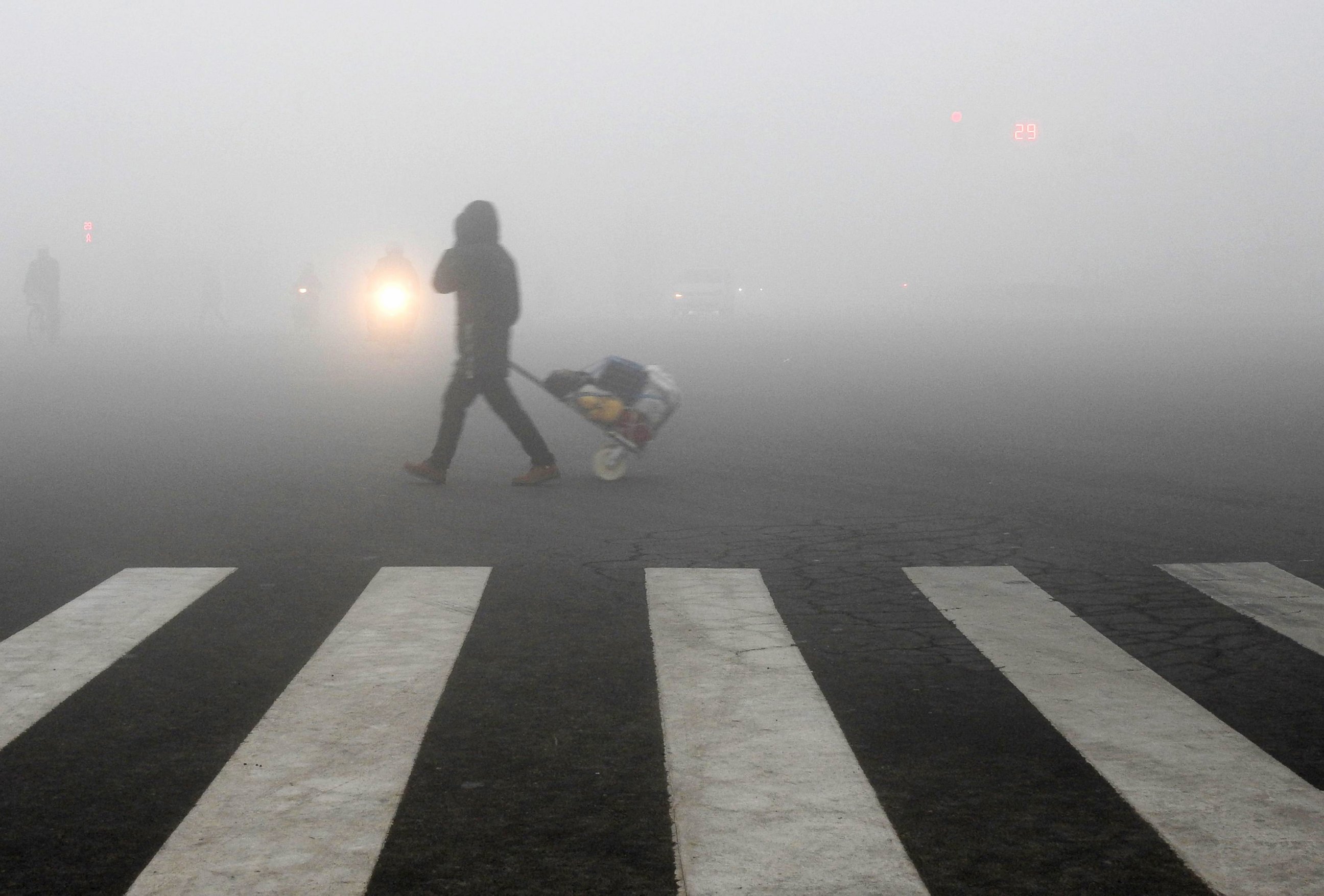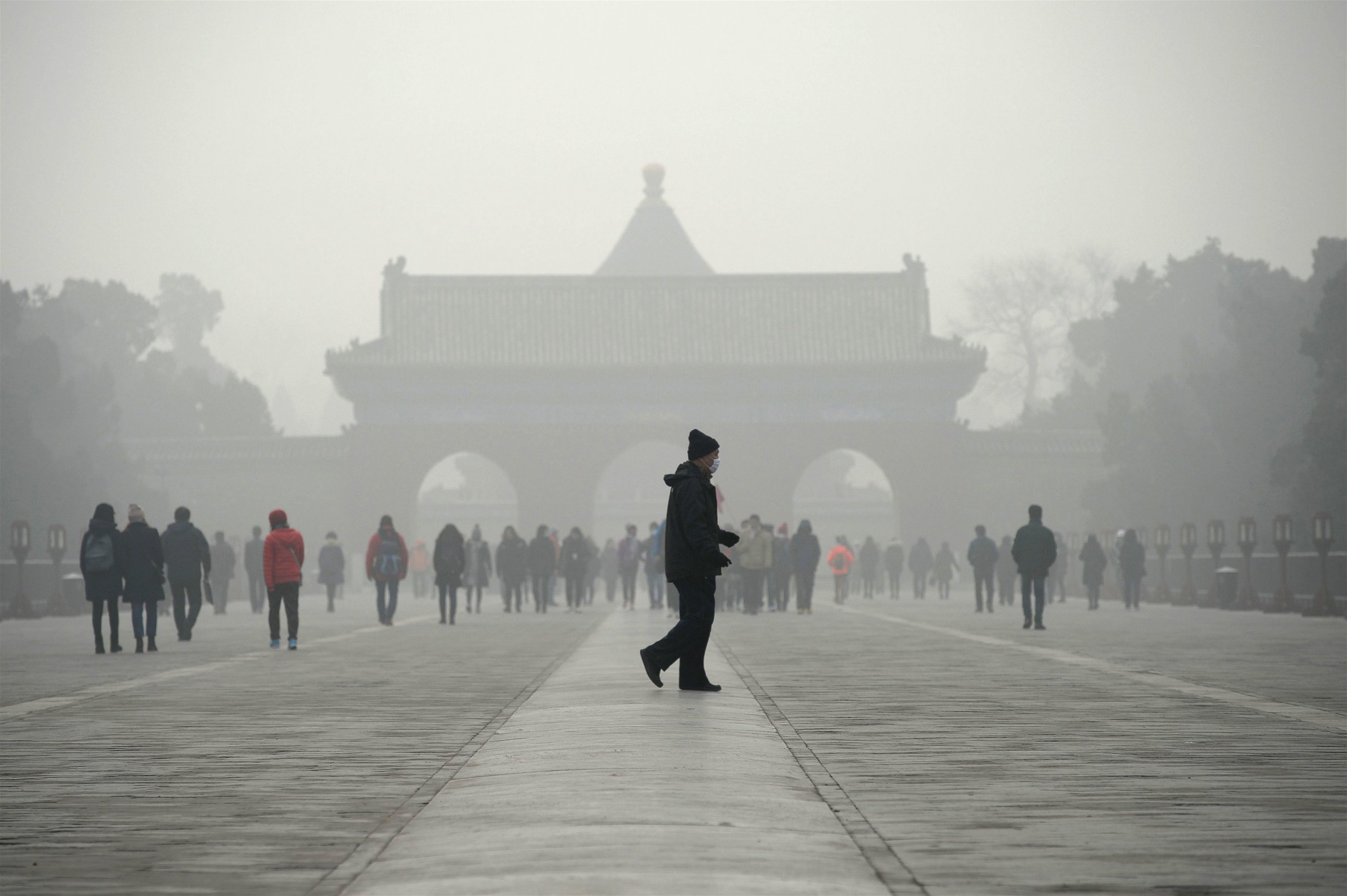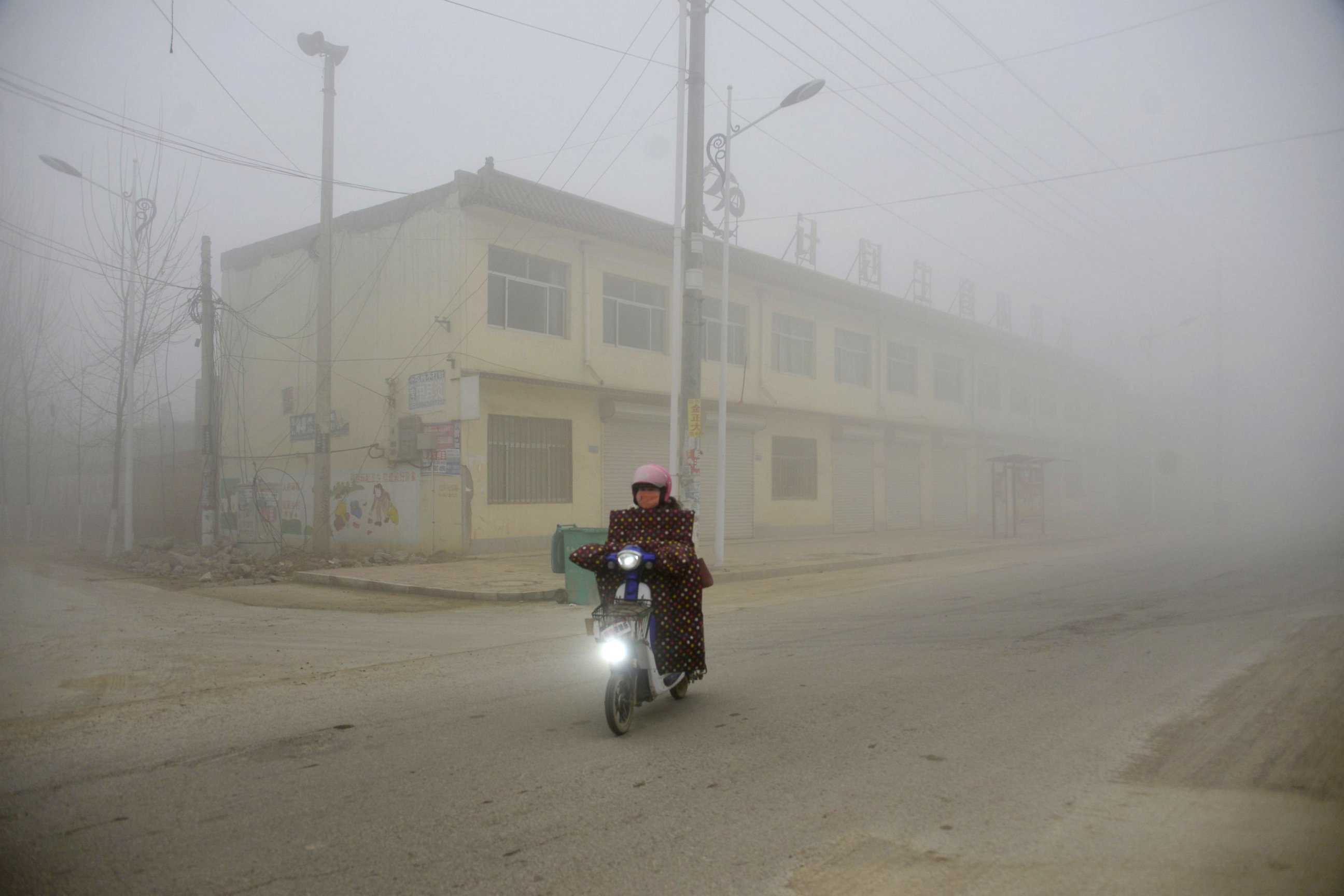460 Million Chinese Residents Suffering From 'Airpocalypse'
Beijing is on red alert, the highest level of China's warning system.
— -- Severe smog in northern China today has caused schools to close and hundreds of flights to be canceled, according to reports.
The "airpocalypse" is affecting 460 million people, with an estimated 200 million people living in areas experiencing hazardous levels of smog — 10 times above guidelines set by the World Health Organization, according to Greenpeace East Asia.
Beijing and 21 other Chinese cities are currently on red alert, the highest level in China's four-tier pollution warning system, according to China's Ministry of Environmental Protection. Hundreds of flights out of Beijing Capital International Airport were canceled, according to state media.

The cities experiencing the most severe pollution are in the county's largest steel or coal industry clusters, which have seen a major uptick in production recently, Greenpeace said.

Handan, a steel production city in Hebei province, which surrounds Beijing, recorded an average air quality index of 780 on Monday, surpassing the official scale of 0 to 500, according to Greenpeace. The AQI for Shijiazhuang, the capital of Hebei, exceeded 700 as well.
The Ministry of Environmental Protection has identified factories across the region that may have violated warnings to reduce or halt operations.
"The ongoing 'airpocalypse' is further evidence that China must implement far stricter limitations on coal consumption and accelerate the restructuring of the economy away from the heavily polluting sectors," said Greenpeace climate and energy campaigner Dong Liansai.
Greenpeace posted a photo of students in the city of Linzhou in Henan province taking exams outdoors in the haze.
Officials are investigating whether local governments have taken appropriate measures to address heavy pollution, the Ministry of Environmental Protection said Friday. At least 687 Chinese officials have already been held accountable for their "poor environmental protection records," the ministry said.
China's air pollution, among the worst in the world, can largely be blamed on its reliance of coal for energy and factory production and a surplus of old cars on the road, according to AP. Beijing and other cities have switched power plants from coal to natural gas — as well as adding fleets of electric buses and taxis — in an effort to improve air quality, AP reported.




